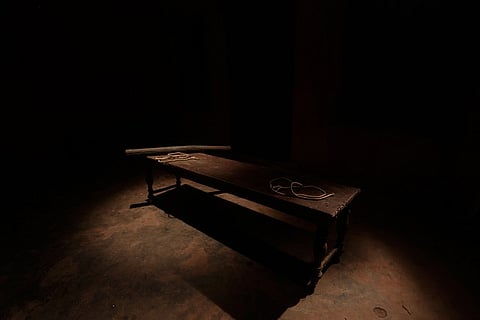

A docufiction based on the torture methods used by cops during the Emergency in India has been denied certification by the Kerala office of the Central Board of Film Certification.
Titled 21 Months of Hell, the film has been rejected certification the Board on several grounds, including that it disrespects Indira Gandhi, Mahatma Gandhi and the national flag, and for containing violence, says its director Yadu Vijayakrishnan.
While making the film, Yadu spoke to ten victims of the Emergency, all from Kerala, and the abuse they were subjected to at the time.
Yadu tells TNM that the CBFC does not have a category for docufiction.
"In historical documentaries, it is quite common to see re-enactments of historic scenes because they don't have footage of those scene. Since this happened at the time of Emergency, we didn't have a lot of footage from the time. So we recreated those scenes. But the CBFC does not have a category for docufiction. They have feature films, short films, documentaries and advertising. My film falls under the broader term of documentary," he explains.
The CBFC, according to Yadu, while rejecting certification to 21 Months of Hell in the first week of December, listed their objections to a couple of scenes from the film.
"There's a scene in which they say I disrespected Mahatma Gandhi. In that scene, agitators are shouting slogans such as 'Bolo Bharat Mata ki Jai' and 'Bolo Gandhiji ki Jai'. When the police arrive, one of the cops shouts at them to stop chanting for the dead Gandhi (Mahatma) and asked them to hail the living Gandhi, which was the then PM Indira Gandhi. I had got this information from a victim who was present at the spot when the incident took place and so we recreated the scene," Yadu says.
A still from the film.
Another scene in the film was found to be disrespectful of the national flag.
"There's a scene where the agitators can be seen waving the national flag and when the cops beat them up, the flag falls on the ground. They are saying that it is disrespecting the flag," the director adds.
While filmmakers are often asked by the Board to edit scenes that are deemed problematic, Yadu says he was not given any such option.
"I had applied for an A certificate since my film has violence. And I also told them I could remove the scenes they think are controversial. But they simply rejected my application," he says.
The CBFC officials also told Yadu that there was no evidence for the torture methods mentioned in the film.
"I told them these are testimonies of real-life victims. And they said they want written proof, such as a government reports from that time. This is ridiculous because the press was also gagged then and the government will never file a report about the crimes it committed," he said.
A still from the film.
The docufiction shows 13 different methods of torture that was used by the police on protestors and, while there were more, Yadu could not include them due to a budget crunch.
"The victims, who were youngsters then, are now between the ages of 60 and 70. The torture they faced was terrible. One sustained a spinal cord injury, one had a kidney malfunction, one became blind and another lost his teeth and his jaw is displaced to the extent that he cannot use a prosthetic jaw either," Yadu says.